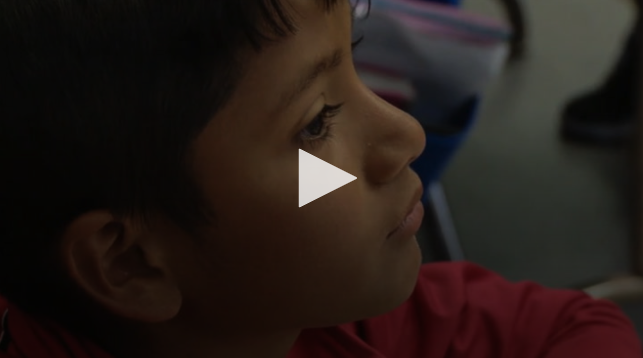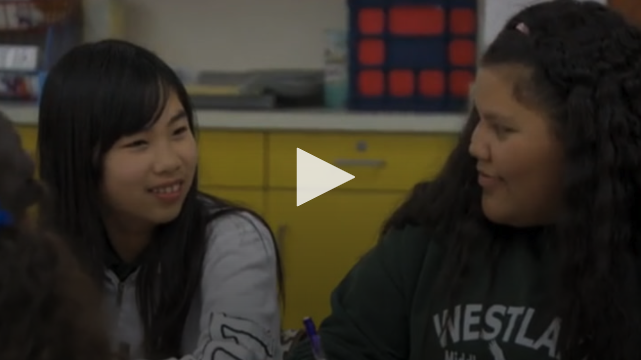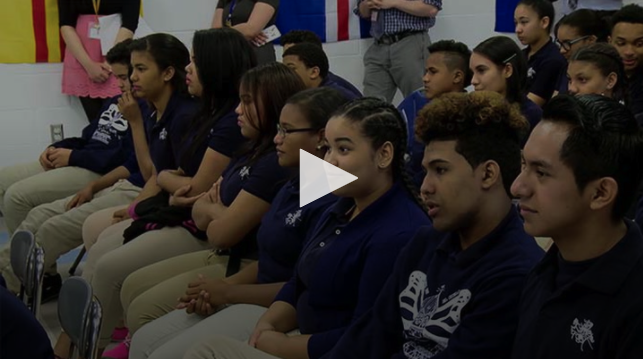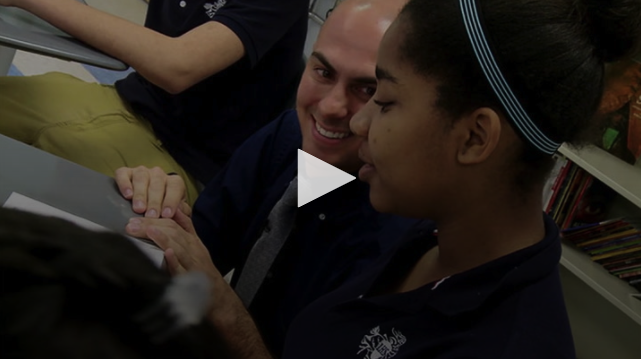No matter where you teach, you probably have English Language Learners (ELLs) in your school community. While it’s true that all learners are language learners, teaching ELLs may feel more challenging, especially if you’re new to teaching. Luckily, there are strategies and tips you can learn to help improve your teaching practice.
Want to get better at working with your ELLs? Check out these Teaching Channel resources for your summer learning.
Dive Right In
A great place to start is our ELL Deep Dive. We’ve organized this collection of resources around four essential questions:
- What does language-rich, content-based instruction look like for ELLs?
- How can I structure academic conversations in the classroom to boost oral language development?
- How do I promote writing in any content area that I teach?
- How can I collaborate with colleagues to support ELLs?
We’re always adding new content to the Deep Dive, so be sure to bookmark it and come back whenever you’re looking for a resource.
Step Into Their Shoes
Sometimes the best way to understand how to best serve your students is to get to know their stories. Emily Francis, one of Tch’s ELL Fab Five Squadsters, shared her own immigrant story so that we can learn from her personal experience. Her posts remind us of the challenges newcomers face, as well as the rich assets, skills, and experiences they bring to our diverse classrooms.
Learn by Watching Others
Teaching Channel has a fantastic collection of videos focused on working with ELLs. Over the years, we’ve partnered with districts willing to show strategies they’ve found to be especially useful for their communities.
In our series from San Francisco, California, we showcase strategies for both designated and integrated language learning. Watch Making a Claim About Variation to see how teacher Anna Dearlove uses a small group to prepare her ELLs for the whole class science activity, Finding Variations in Living Organisms.

VIDEO: Making a Claim About Variation
In Oakland, California, we captured practices for building skills in academic conversations. Watch this video to learn more about the series, and then check out the strategy videos featuring discussion protocols and talk moves.

Focus on Newcomers
Does your school community have newcomers, recently arrived in the U.S., with limited background in the English language? Do you have students with interrupted or limited formal education (SIFE), with academic skills far below their grade level due to limited school experience? We have some great videos demonstrating key practices you can use this upcoming school year to better serve this population of students.
- Looking to make sure your school is a welcoming place for newcomers? Watch how you can use community circles to create a school-wide culture that welcomes and supports newcomer ELLs. You can also listen to a podcast episode about the same topic.

- Wondering how to teach literacy skills with high school students? Watch how Christopher Maldonado incorporates foundational literacy skills throughout his lessons.
- Want to challenge your students with a debate? You sure can. Watch how students at ENLACE Academy in Lawrence, Massachusetts build their language skills through debate structures.

Start Collaborating
You don’t need to go it alone. Whether you can physically share space with a teacher or simply plan together, any type of co-teaching or co-planning can benefit all of your students.
For an example, watch Peer Teaching Through Expert Groups and see how two content area teachers and an ELL specialist work together to create a learning environment that meets the needs of all their students.

If you’re thinking about literally sharing space with another teacher, take a look at this teacher-led tour of a shared bilingual classroom. The teachers have pulled back the movable wall between two rooms to create a learning space filled with corners for conversations and collaboration. Watch Bridging Content in a Bilingual Classroom to see a lesson from this amazing class.
Just starting a collaboration? Read 3 Tips for Supporting ELLs Through Co-Teaching & Collaboration for advice. Not sure co-teaching is for you? Need to convince a colleague? Read The Far Reaching Benefits of Co-Teaching for ELLs.
No matter how you choose to learn this summer, Teaching Channel has a range of options. We even have a new podcast episode focused on five things you can do this summer to prep for reaching and teaching ELLs in the fall. Be sure to check it out!
Let us know the ideas that most appeal to you and which ones you decide to use. We’d love to hear from you!







